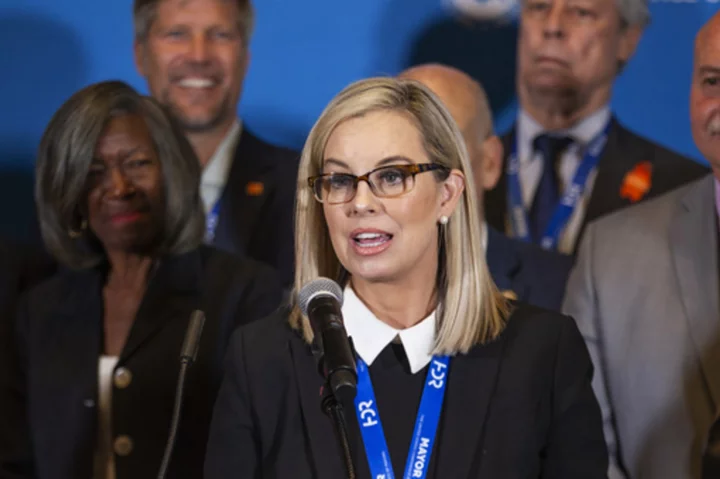RENO, Nev. (AP) — A private investigator who used GPS devices to secretly track the vehicles of Reno Mayor Hillary Schieve and a county commissioner ahead of the 2002 election asked the Nevada Supreme Court late Friday to overturn a judge's order that he identify the client who hired him.
Schieve filed suit in December seeking damages from private detective David McNeely for a violation of her privacy after a mechanic alerted her to the clandestine GPS tracking device.
Sparks police determined it was purchased by McNeely and ex-Washoe County Commissioner Vaughn Hartung joined the suit in February under similar circumstances.
Lawyers for McNeely said in Friday's appeal to the state's high court that divulging the name of a client who paid him to spy on the politicians would violate the long-accepted and expected confidentiality of a “private investigator-client relationship.”
The attorneys said Washoe District Judge David Hardy had erroneously rejected McNeely's argument earlier this month that the client's name was a “trade secret” protected under Nevada law. They likened the stealth nature of the relationship to the “secret sauce” in a prized recipe.
“Clients of private investigators expect confidentiality,” attorney Ryan Gormley wrote in a 31-page appeal filed Friday.
“Without that confidentiality, the business will fail. Thus, the protection of client identity creates significant economic value for both defendants and the private investigation industry as a whole,” he said.
Hardy had ordered McNeely to identify his client by Friday. But he noted in his ruling earlier this month that he was inclined to stay the case if an appeal was in the works because there would be no way to reverse the harm McNeely suffered from the disclosure of his client's identity if an appellate court later decided he had a right to keep it secret.
Another lawyer filed a motion this week to halt the proceedings on behalf of an anonymous John Doe who said he hired McNeely in an effort to combat corruption in government.
The document attorney Jeffery Barr filed said John Doe has a First Amendment right to anonymously investigate elected officials. It said Doe had not broken any laws or disseminated any of the information gathered on his behalf and never was aware or instructed McNeely to place GPS trackers on vehicles.
Judge Hardy on Thursday agreed to put the case on hold while McNeely pursued appeal avenues, a stipulation to which all the parties had agreed.
The tracking device was on Schieve’s vehicle for at least several weeks and on Hartung’s vehicle for several months, their lawsuit says.
Schieve said McNeely trespassed onto her property to install the device, which a mechanic noticed while working on her vehicle last year in the thick of campaign season, about two weeks before she won re-election for mayor in November.
Hartung also won re-election but since has resigned to accept an appointment as chairman of the Nevada Transportation Commission.
Hardy said in his May 4 ruling that the use of a GPS tracking device to monitor the movements of a person could be "a tortious invasion of privacy."
McNeely's appeal said the Supreme Court's intervention is necessary to provide clarity to state law industry wide.
“In the context of the private investigator-client relationship, the secrecy of the relationship between the private investigator and client is precisely what makes the relationship valuable to the business," the appeal said.
“Because, without the secrecy, there would be no relationship,” it said. “The confidentiality is the secret sauce.”

